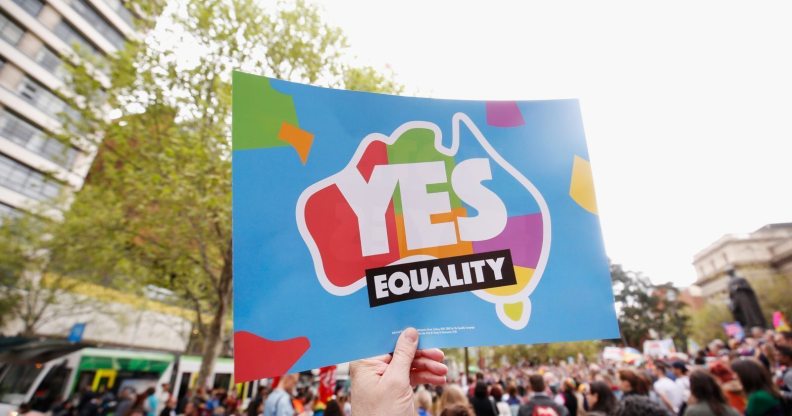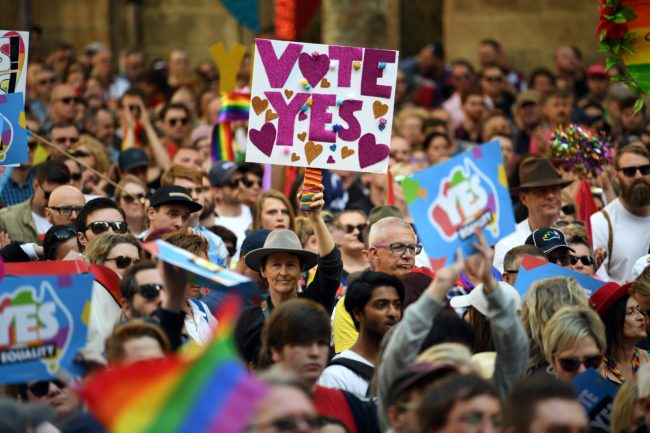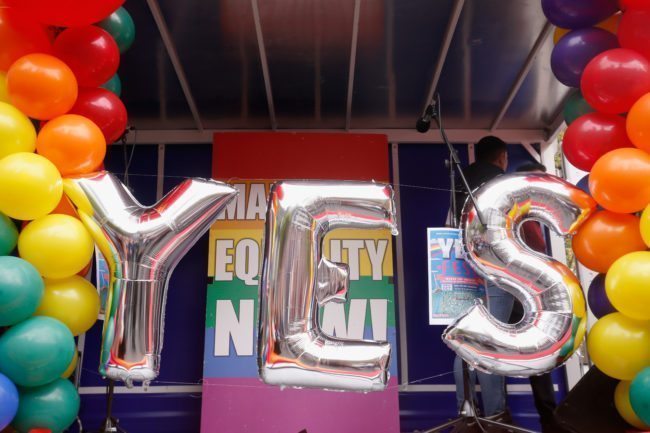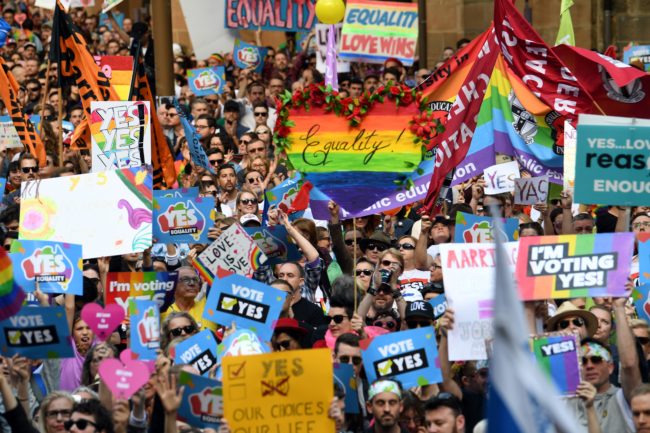Bigger turnout in Australia’s same-sex marriage vote than Brexit

(Getty)
There has been a bigger turnout in Australia’s same-sex marriage postal survey than in the UK’s Brexit referendum.
78% of eligible Australians have now cast their vote in the non-binding ballot on marriage rights.
The vote has no legal basis and will merely inform MPs when the issue is permitted to go before Parliament.
Meanwhile 72% voted in the UK’s referendum on the European Union, in which Leave won by a 4% margin and the result is being implemented as the “will of the people”.
Voters have until 7 November to return their ballots, before results will be announced on 15 November.
The Galaxy Research poll also found 66% of those people had already voted Yes in Australia’s postal survey on marriage equality.

The final week’s poll, commissioned Parents and Friends of Lesbians and Gays (PFLAG), showed that among 25-34 year old, a group largely supportive of equality, just 12% had not yet voted.
68% of Australians with young children have votes Yes, higher than the average of 66%.
Meanwhile 34% of Australians have voted to block same-sex marriage in the country.

Even if Australia votes Yes to equal marriage, anti-gay politicians in the country are plotting more than 100 amendments intended to destabilise LGBT equality.
The vote has no legal basis, however, and will merely inform MPs when the issue is permitted to go before Parliament.
However, hardline anti-LGBT MPs within the governing Liberal-National Coalition will not be conceding, even if the public gives a strong backing for equality.
Instead, they will attempt to table a string of amendments to the eventual marriage bill.

Protests in Australia (SAEED KHAN/AFP/Getty Images)
The government has indicated that if the plebiscite passes, it would give its backing to a backbench marriage equality bill, such as that proposed by Liberal Senator Dean Smith.
Smith’s bill is modelled on equal marriage legislation in other countries, and bears similarities to the New Zealand and UK same-sex marriage laws.
But a group of hardline conservative politicians are plotting a rebellion – and may provoke a split in the party if they are not granted a sing of concessions.
Anti-LGBT Senator Eric Abetz, a strong opponent of equal marriage and the government’s former Senate leader, this week said he would back amendments seeking ‘freedom to discriminate’ loopholes, which equality activists say would undermine LGBT rights protections.
Speaking to the West Australian, he said: “[The bill] is seriously inadequate, as parents, freedom of speech and religious freedom, along with conscientious objection, all need full protection.”
The group could drown the legislation in amendments.
According to the newspaper, sources say that between 60 and 100 amendments could be filed – which could stall progress on the issue.
Senator Smith warned that Parliament should not allow the legislation to be passed if it is amended to undermine discrimination protections.
He said: “If there is a Yes vote, it will be necessary for the opponents of marriage to detail their amendments.
“This will provide a challenge to the Liberal Party because the community will not accept any winding back of Australia’s well-established anti-discrimination laws.”
The Coalition, led by Prime Minister Malcolm Turnbull, is deeply divided on equal marriage.
The Nationals and a powerful right-wing faction of the Liberals – including prominent members of Turnbull’s Cabinet – are strongly opposed to equal marriage, while centrists and the youth wing of the Liberals are in favour of reform.
The public vote was only called by Turnbull – a lukewarm supporter of equal marriage – as a compromise between the two groups after MPs began openly discussing a leadership challenge or rebellion against him.
However, punting the issue to the public does not mean that the rift has gone away, and the bill is likely to run into extreme difficulties in Parliament.
The government recently lost its one-seat majority in the House of Representatives, which means the voice of the opposition Labor Party, which supports LGBT rights, could be key when the bill moves forward.
Turnbull had previously claimed that same-sex couples could be married by the end of the year if the plebiscite, which concludes in two weeks, is affirmative. Experts consider this unlikely.

